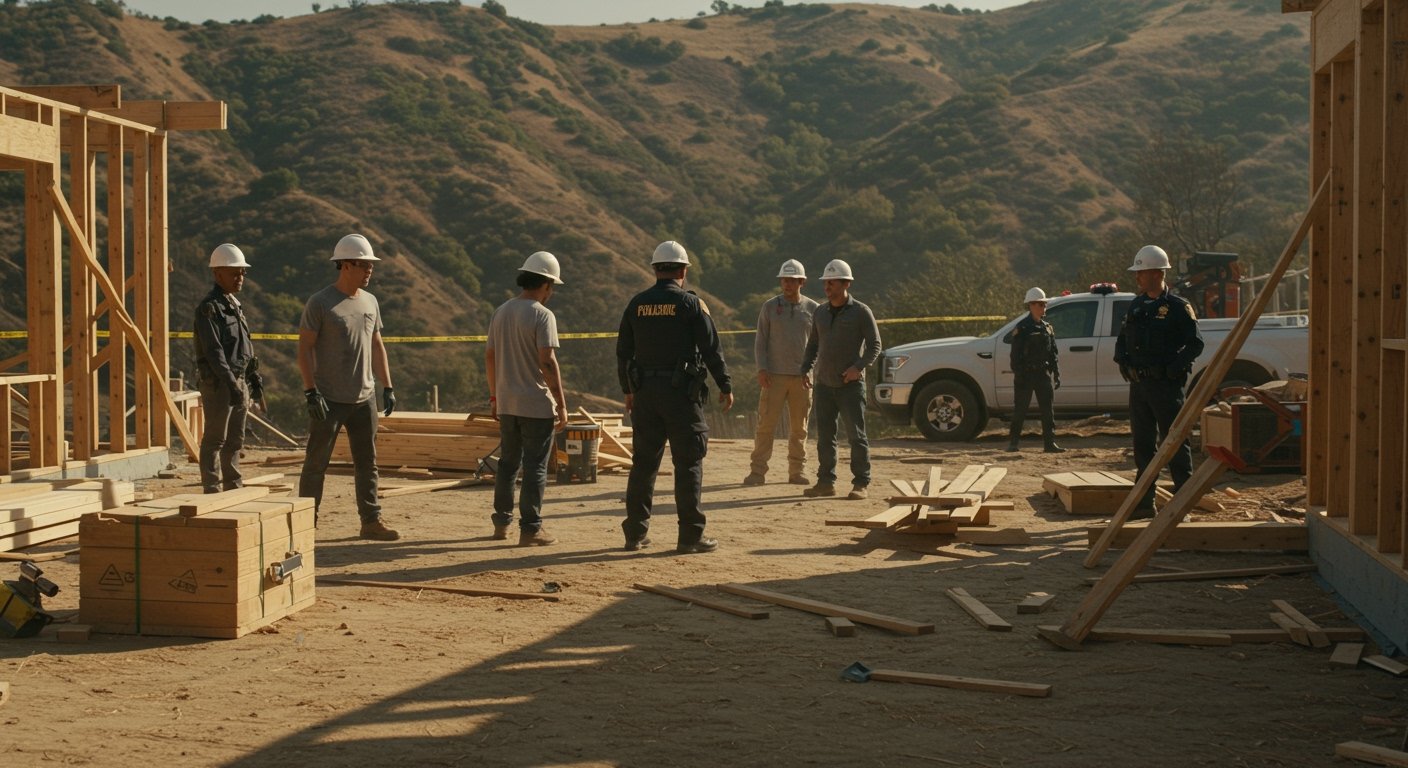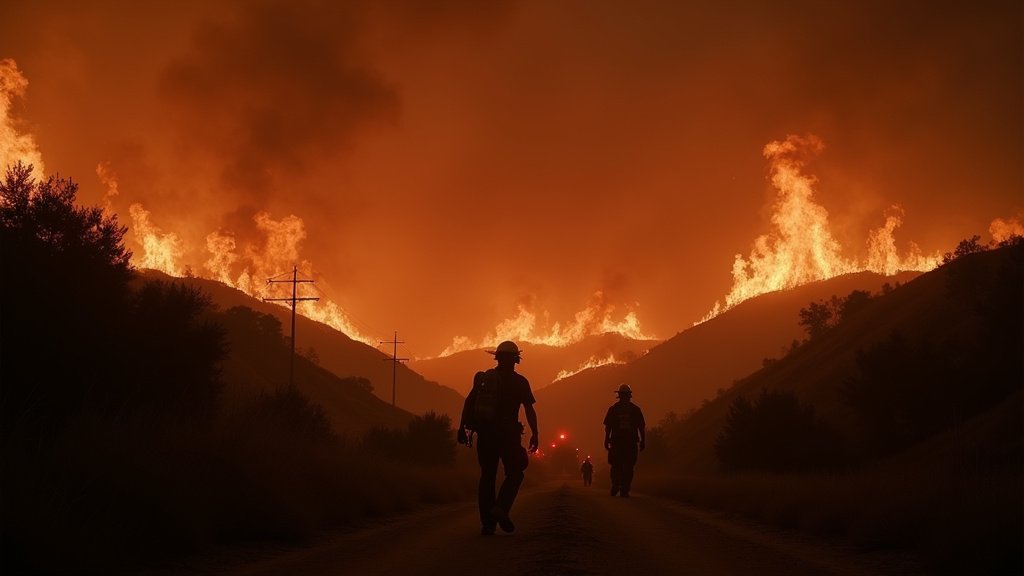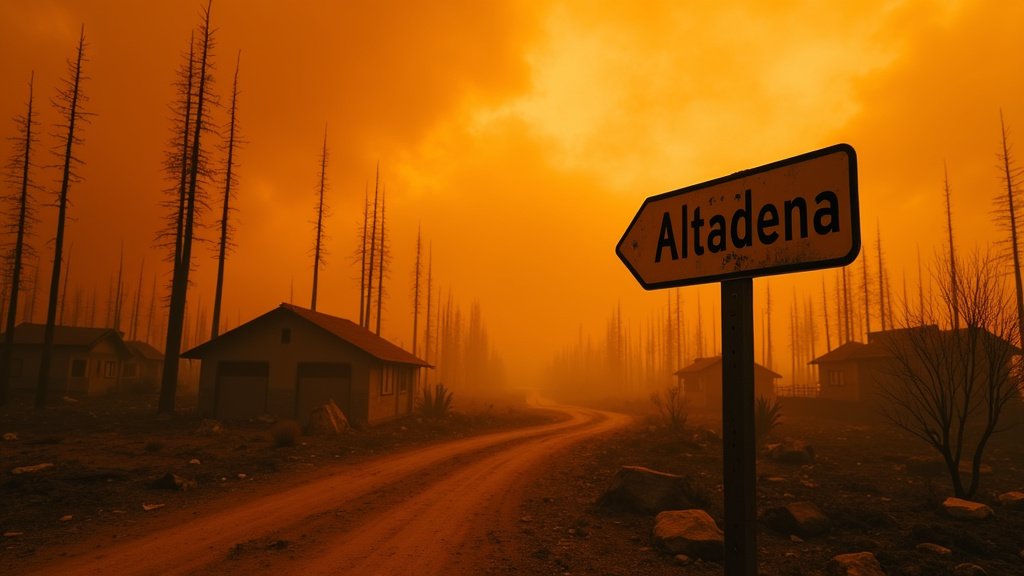Los Angeles, CA – The fragile economy of Los Angeles, still reeling six months after devastating wildfires destroyed over 16,000 structures, is facing significant new pressures following a wave of targeted immigration enforcement actions.
The recent operations have severely disrupted critical labor sectors, including framing, landscaping, and construction, which are essential for the immense post-fire rebuilding effort. Reports indicate that crews have been abandoning job sites and going into hiding, leading to significant delays in projects across the metropolitan area.
Labor Shortages Cripple Construction and Development
The impact on development and construction is immediate and widespread. Retail shop renovations have reportedly ground to a halt, while real estate developers are struggling intensely to find necessary labor. Arturo Sneider, CEO of Primestor, a company managing $1.2 billion in shopping centers and currently overseeing the development of 3,000 apartments, confirmed the severe staffing shortages.
“We lack staff,” Sneider stated, citing the direct correlation between the enforcement actions and project delays.
Between June 6 and June 22, immigration agents arrested more than 1,600 people across the LA area. These operations targeted various locations, including car washes, construction sites, and day-laborer hubs such as Home Depot parking lots, places where many essential workers seek employment.
Broader Economic and Social Fallout
The crackdown has had cascading effects throughout the local economy and community. Businesses have reportedly shuttered due to labor shortages or fear. Increased police overtime costs have strained municipal budgets. Furthermore, fear of apprehension has led to the cancellation of traditional Fourth of July events in some Latino neighborhoods, a stark indicator of the pervasive anxiety.
The wave of detentions prompted a week of intense protests in downtown LA and surrounding suburbs. Some of these demonstrations regrettably turned violent, escalating the situation and drawing a strong response from the federal government. President Donald Trump authorized the deployment of the National Guard and U.S. Marines to the area, a decision that came despite objections from Democratic Gov. Gavin Newsom.
Adding to the tensions, the Trump administration filed a lawsuit against the city of Los Angeles last week, challenging its policies regarding cooperation with federal immigration agents.
Rebuilding Needs and Economic Indicators
The scale of the post-wildfire rebuilding task is immense. A report by the Urban Land Institute, UCLA, and USC underscored the challenge, estimating a need for 70,000 additional construction workers by mid-2026. This figure is substantial when compared to the current LA County construction workforce, which stands at approximately 145,000.
The economic strains in Los Angeles predate the recent immigration enforcement surge. Housing permits in the city of LA, for example, had plunged by 57% in the first quarter of the year and were just beginning to show signs of rebound before the arrests in June surged, according to data from Hilgard Analytics.
Joshua Baum, Founding Principal at Hilgard Analytics, summarized the psychological impact of the operations, noting that “fear spreads quickly,” a factor that can paralyze economic activity as much as physical absence of labor.
Diverse Headwinds for the LA Economy
The construction and labor crisis is occurring alongside other significant economic headwinds for Los Angeles. The Port of Los Angeles, a key economic engine, saw a 19% drop in imports in April, a decline attributed partly to ongoing tariffs and trade disputes. Concurrently, Hollywood studios are reportedly losing ground to overseas markets, prompting California lawmakers to take action by doubling film tax incentives to $750 million in an effort to retain production and jobs within the state.
Taken together, the immigration enforcement actions have introduced a critical new layer of complexity and uncertainty to Los Angeles’ already challenging economic landscape, disrupting essential industries and exacerbating existing vulnerabilities as the region attempts to recover and grow.





